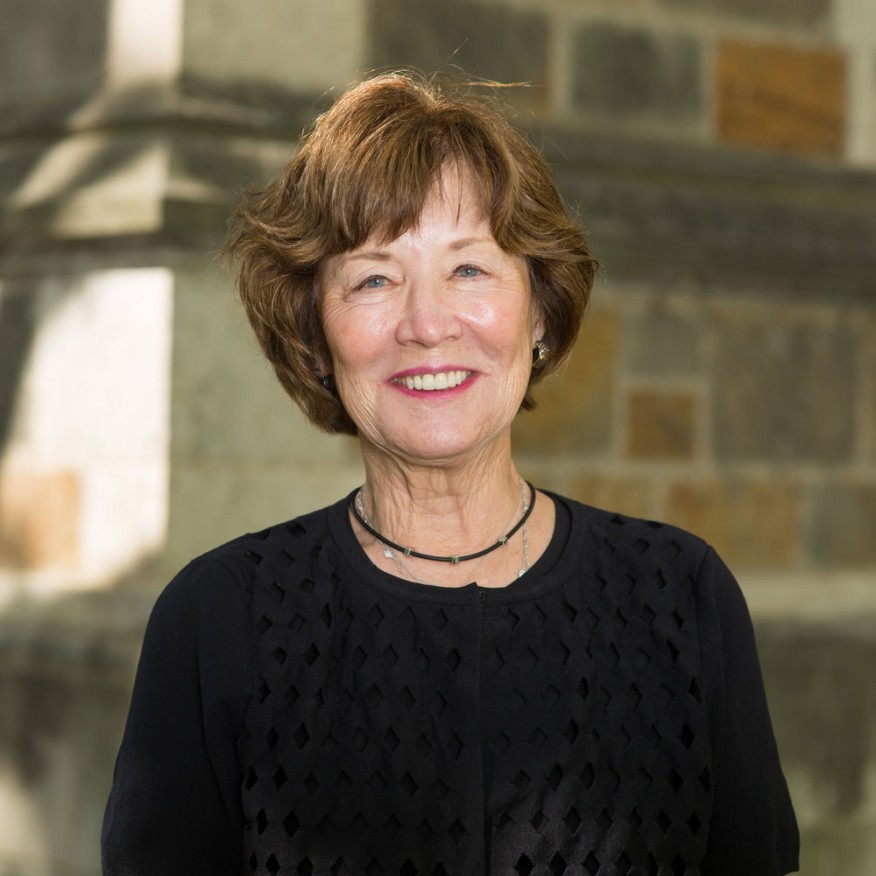After 35 years at the School of Social Work, Professor Ruth Dunkle is retiring. Dunkle first came to U-M as part of a site visit team for the National Institute of Health (NIH) to review Professors John Tropman and Sheila Feld’s training grant in gerontology. At the time, she was on faculty at Case Western University. “Those were the days when the NIH sent out teams to look at projects and talk to people. I knew the project had a pre and post doc arrangement, so I thought ‘I’ll apply for that in a couple of years.’” The visit led to an offer for a faculty position at the School of Social Work from Dean Harold Johnson.
“I loved my job at Case and coming to Michigan meant changing my life, but I thought it through and decided to come. Young faculty don’t really realize what Michigan has to offer, especially if they haven’t been other places before. The resources here are unbelievable and those resources are at all levels, not just at the School, so whatever you want to do, you’ve got spectacular colleagues across campus to work with and many financial initiatives available.” Before she was at Case, Dunkle was at a school where administrators had to approve requests to use the copy machine. “I thought to myself — I can’t live like this. Michigan is a totally different kettle of fish.”
Dunkle ended up taking over the NIH training program from Tropman and Feld, which ran for 25 years. She also oversaw training programs in geriratric social work funded by the John A. Hartford and McGregor Foundations.
Dunkle is the Wilbur J. Cohen Collegiate Professor of Social Work and served as interim dean of the School of Social Work in 2016. She also held other administrative positions in the School, including associate dean for faculty affairs and director of the Joint Doctoral Program in Social Work and Social Science. She was president of the Society for Social Work and Research from 2018-2020. Dunkle received the Career Achievement Award from the Association for Gerontology Education in Social Work and was named a Fellow to the Society for Social Work Research in 2020.
Dunkle's career has been dedicated to teaching, research and clinical practice in the field of gerontology. The gerontology track has helped to facilitate these dimensions. I really did get to know faculty and students, whom I found remarkable. Working with my colleagues and the students provided ideas and support that has fed my career.
“I hope the School’s new pathway process will attract students into gerontology and provide resources for faculty in other pathways. With the increasing number of older adults in families and care settings, all faculty and students need to know about gerontological issues.”
As a gerontologist, Dunkle developed a distinct philosophy on retirement. “I think the biggest impact is that I understand about health issues and old people: What's important is to maintain your well being. You can't afford to sit around. You must be active in order to maintain your mental and physical health.” She warns against viewing retirement as a vacation and encourages plans that are open to change. “People think they are going to flip a switch and think, ‘oh yeah I'm going to do this’ without really realizing that you need to plan, you need to think now about what you are going to do in the short run and long term.”
Dunkle’s own retirement plans involve no such switch. “I love my job, so I'm planning on doing as many components of the job as I possibly can: I have research projects that are ongoing, and I have doctoral students to support through their graduation. So, in some ways, my life really isn't going to change very much, and especially after COVID, it doesn't seem like there's going to be an abrupt shift.”
In retirement, she does plan on playing more tennis. “I play tennis at night, and on the weekends. Now I can shift and figure out daytime tennis and you know, that’s a whole new world. So I'm looking forward to making new friends and having much more flexibility in my life.
